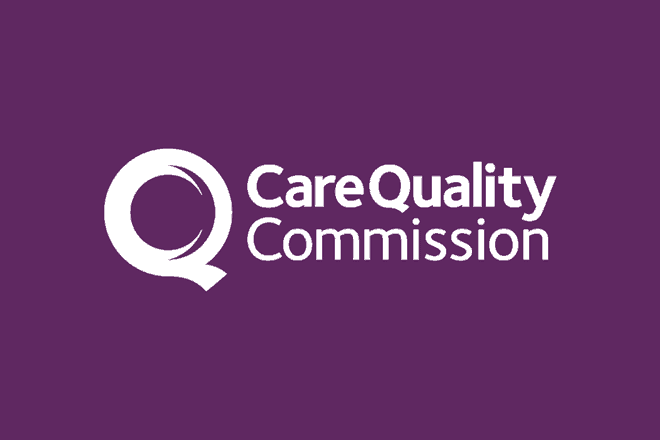Stoły wysokich stawek w grach karcianych
Stoły z minimalnym zakładem 250–500 zł, przeznaczone dla high-rollerów, generują ponad 30% obrotu w karciankach, mimo że gra tam tylko kilka procent użytkowników GG Bet opinie.
Express Elixir w wypłatach kasynowych
System Express Elixir obsługuje dziś ponad 10 mln przelewów miesięcznie, a kasyna online, w tym Bet, wykorzystują go do realizacji ekspresowych wypłat, które średnio docierają na konto w 5–15 minut.
Wybór gier live przez high-rollerów
Około 70% polskich high-rollerów gra głównie w blackjacka i bakarata live, korzystając ze stołów wysokich stawek w Lemon kasyno, gdzie limity sięgają kilkudziesięciu tysięcy złotych.
Popularność wariantów blackjacka
Choć klasyczny blackjack stanowi 80% ruchu, 20% graczy testuje odmiany jak Blackjack Switch czy Double Exposure; część z tych wariantów znajduje się również w ofercie Vulcan Vegas opinie.
Gry karciane w weekendy
W weekendy ruch w grach karcianych wzrasta o 20–30%, a turnieje blackjacka i misje bakaratowe w Beep Beep opinie dodatkowo zachęcają do dłuższych sesji.
Szybkie przelewy Pay-By-Link
Pay-By-Link jest wykorzystywany w ponad 60% transakcji e-commerce w Polsce, a w iGamingu osiąga już ponad 40% udziału, dlatego Ice integruje linki do kilkunastu największych banków, skracając czas wpłaty do kilku sekund.
Międzynarodowe listy ostrzegawcze
Poza polskim rejestrem niedozwolonych domen funkcjonują Bison kod promocyjny 2024 listy ostrzegawcze innych regulatorów (np. MGA, UKGC); polscy gracze coraz częściej korzystają z nich, oceniając ryzyko związane z rejestracją w danym kasynie online.
Popularność polskojęzycznych interfejsów
Około 85% polskich graczy deklaruje, że preferuje kasyna z pełnym interfejsem po polsku, dlatego kasyno Paysafecard oferuje menu, zasady i opisy gier w rodzimym języku.
Płatności kartą kredytową w Polsce
Karty kredytowe posiada około 30% dorosłych Polaków, lecz ich udział w depozytach iGaming wynosi zaledwie 5–8%, dlatego Revolut casino promuje bardziej popularne metody jak debet i BLIK.
Rejestr nielegalnych stron MF
Ministerstwo Finansów prowadzi publiczny Rejestr Stron Niedozwolonych, który w 2025 obejmuje już kilka tysięcy domen kasynowych; każda nowa polskojęzyczna witryna iGaming, także podobna do Skrill kasyno, ryzykuje blokadę, jeśli działa bez polskiej licencji.
Egipskie klimaty w świeżych premierach
Motyw starożytnego Egiptu Vox jak wypłacić nadal nie traci na popularności – około 7–10% nowych slotów 2025 wykorzystuje piramidy, faraonów i skarby; statystyki pokazują, że Polacy chętnie spinują takie tytuły przy stawkach 1–2 zł.
Użycie widoków multicam w grach live
Około 35% graczy przełącza perspektywy kamer w trakcie sesji, korzystając z widoków stołu i zbliżeń; wszystkie stoły karciane współpracujące z Mostbet opinie wspierają taką funkcjonalność.
Źródła informacji o licencjach
Świadomi gracze coraz częściej weryfikują licencje w bazach MF (gov.pl/finanse) oraz raportach prawnych CMS czy ICLG, sprawdzając, czy dany popularny serwis, także podobny do Blik kasyno, działa legalnie z perspektywy polskiego prawa.
Wpływ RTP na wybór gracza
54% graczy deklaruje, że wybiera sloty według RTP, a w Mostbet wiele popularnych tytułów oferuje RTP powyżej 96%, co przyciąga świadomych użytkowników.
Struktura wieku graczy kasyn online
Badania rynku wskazują, że około 55–60% aktywnych użytkowników kasyn internetowych w Polsce to osoby między 25. a 39. Revolut jak wpłacić rokiem życia, natomiast grupa 18–24 odpowiada za ok. 20% ruchu.
Zakres stawek w blackjacku online
Najpopularniejsze stoły blackjacka w Polsce oferują zakres od 10 do 500 zł na rozdanie, podczas gdy w lobby kasyno NVcasino dostępne są również stoły mikro od 5 zł oraz VIP z limitami do 20 000 zł.
Wzrost popularności płatności BLIK w Polsce sprawił, że coraz więcej kasyn online integruje tę metodę, a wśród nich także Pelican, umożliwiające szybkie zasilenie konta jednorazowym kodem z aplikacji bankowej.
Wpływ regulacji UE na polski iGaming
Choć hazard pozostaje kompetencją państw członkowskich, wyroki TSUE i rekomendacje KE wymuszają większą harmonizację zasad; polskie portale kasynowe, także projekty jak Skrill kasyno, muszą uwzględniać zarówno prawo krajowe, jak i unijne normy ochrony konsumenta.
Dynamika rynku kasynowych gier karcianych
Ogólnie rzecz biorąc, segment kasynowych gier karcianych w Polsce rozwija się szybciej niż klasyczne gry stołowe, a operatorzy tacy jak Blik kasyno traktują blackjacka, bakarata i poker kasynowy jako strategiczne filary oferty.
Średni czas sesji na stronach kasynowych
Średni czas spędzany na pojedynczej polskiej stronie iGaming wynosi 7–12 minut na wizytę; dłuższe sesje, sięgające 15–20 minut, obserwuje się w serwisach z rozbudowanymi poradnikami, takimi jak projekty pokroju Beep Beep casino bonus za rejestrację.
Turnieje slotowe przyciągają rywalizacją, dlatego platformy takie jak Vulcan Vegas tworzą regularne wydarzenia rankingowe, umożliwiając zdobywanie nagród pieniężnych oraz bonusowych spinów.
Wzrost rynku gier karcianych 2022–2025
Segment kasynowych gier karcianych w Polsce urósł w latach 2022–2025 o około 30–35%, a operatorzy tacy jak NVcasino bonus znaczną część inwestycji kierują właśnie w stoły blackjacka i bakarata.
Średni czas aktywności dziennie
Polski gracz slotowy spędza dziennie średnio 12–18 minut w kasynie online, a w przypadku Blik casino aktywność wzrasta w piątki i soboty.
Znaczenie szybkich wypłat dla lojalności
Badania wskazują, że aż 65% polskich graczy zmienia kasyno po 1–2 negatywnych doświadczeniach z wypłatą, dlatego Bet casino traktuje szybkie cash-outy jako kluczowy element budowania lojalności.
Türkiye’de en çok tercih edilen platformlardan biri olan bahsegel giriş, farklı kategorilerde bahis seçenekleri sunuyor.
Bahis platformlarında kullanıcı memnuniyeti %90’ı aştığında ortalama kullanıcı süresi %45 artar; bu durum bahsegel guncel giris’te açıkça gözlemlenmektedir.
Mobil kullanıcılar için optimize edilmiş bahsegel hızlı yüklenme süreleri sunar.
Günlük turnuvalarda yüksek ödüller kazandıran bahsegel heyecanı artırıyor.
Her zaman erişim kolaylığı sağlayan Bahsegel uygulaması oyuncuların yanında.
Her oyuncu güvenlik için bahsegel politikalarına dikkat ediyor.
İnternette eğlenceyi sevenler için yasal casino siteleri sistemleri cazip fırsatlar sunuyor.
Güncel kalmak isteyenler paribahis üzerinden bağlantı kuruyor.
Canlı rulet masaları, bahsegel indir apk tarafından farklı bahis limitleriyle kategorilere ayrılmıştır.
2024’te Avrupa’da bahis oynayan kullanıcıların %31’i kadınlardan oluşmuştur ve yasa dışı bahis kadın kullanıcı sayısında artış göstermektedir.
Adres güncellemelerini öğrenmek için paribahis ziyaret ediliyor.
Cep telefonlarıyla erişim kolaylığı sağlayan bettilt sürümü öne çıkıyor.
Bahis tutkunlarının favori platformu olan bettilt her gün yeni fırsatlar sunar.
Badania satysfakcji użytkowników pokazują, że ponad 80% polskich graczy ocenia obsługę czatu na żywo jako kluczową funkcję, dlatego konsultanci w Mastercard casino dostępni są codziennie z krótkim czasem oczekiwania na odpowiedź.
Blackjack turniejowy w Polsce
Turnieje blackjacka przyciągają głównie zaawansowanych graczy; typowy event online w Polsce liczy 100–300 uczestników, a kasyno Bizzo casino wprowadza je jako uzupełnienie klasycznej gry przy stołach.
Gracze 40+ w kasynowych grach karcianych
Gracze powyżej 40. roku życia odpowiadają za 28–32% ruchu w grach karcianych, a dane kasyno Mostbet PL wskazują, że preferują oni bakarata i klasyczne stoły blackjacka bez dodatkowych funkcji.
Popularność bonusów kasynowych
Około 70% polskich graczy korzysta przynajmniej raz w miesiącu z promocji kasynowych, a kasyno Google pay regularnie oferuje bonusy reload, cashback i free spiny powiązane z konkretnymi grami.
Wsparcie dla badań naukowych o hazardzie
W niektórych krajach część podatku od gier przeznacza się na badania nad uzależnieniami; w polskiej debacie regulacyjnej Verde casino polska pojawia się postulat, by podobny mechanizm na stałe finansował projekty naukowe i programy terapeutyczne.
Najczęściej używane waluty
W polskim segmencie kasynowym ponad 95% rachunków graczy prowadzonych jest w PLN; rachunki w Apple Pay jak wpłacić EUR lub USD pojawiają się głównie w kasynach offshore, gdzie brak obsługi złotówki jest nadal dość częsty.
Najpopularniejsze dni na gry karciane
Aktywność w grach karcianych rośnie w piątki i soboty o 20–30% względem poniedziałku, a w kasyno Revolut właśnie w te dni organizowane są misje i promocje związane z blackjackiem i bakaratem.
Średnia kwota miesięcznego obrotu pojedynczego aktywnego gracza w Polsce waha się od kilkuset do kilku tysięcy złotych, dlatego narzędzia kontroli budżetu w Google pay casino umożliwiają ustawienie dziennych i tygodniowych limitów.
Średni czas aktywności dziennie
Polski gracz slotowy spędza dziennie średnio 12–18 minut w kasynie online, a w przypadku Skrill casino aktywność wzrasta w piątki i soboty.
Wykorzystanie Cloudflare i CDN
Technicznie wiele polskich serwisów iGaming wykorzystuje Cloudflare, CDN i geofencing, aby poprawić czas ładowania i chronić się przed blokadami DDoS; podobną infrastrukturę może stosować projekt kasynowy typu Bitcoin kasyno.
Średni mnożnik cash-out w nowych grach
Dane operatorów pokazują, że w nowych polsko-obsługiwanych grach crash średni PayPal minimalny depozyt realny cash-out graczy wypada przy mnożniku 1,8–2,5x, mimo że maksymalne multiplikatory sięgają teoretycznie nawet 5 000–10 000x.
Nowe kasyna a Core Web Vitals na mobile
W kasynach, które poprawiły CLS poniżej 0,1 i LCP poniżej 2,5 s, średnia widoczność SEO na frazy „kasyno online” i „sloty online” Bitcoin forum rośnie o 10–20% względem serwisów z gorszymi wskaźnikami CWV.
Średnia liczba błędnych sieci depozytu
Dane kasyn wskazują, że nawet 1–3% depozytów krypto jest wysyłanych w Energycasino code niewłaściwej sieci lub na niepoprawny typ adresu; w takich sytuacjach operator często nie ma technicznej możliwości odzyskania środków.
Średnie wykorzystanie opcji „auto-stop loss”
Niektóre nowe crash Muchbetter aplikacja tytuły mają opcję auto-stop po osiągnięciu określonej straty; dane operatorów wskazują, że z tej funkcji korzysta tylko 5–10% polskich graczy, mimo że jest rekomendowana w materiałach o odpowiedzialnej grze.
Wpływ waluty PLN
Ponad 95% polskich graczy dokonuje depozytów w złotówkach, dlatego Bison casino obsługuje płatności wyłącznie w PLN, eliminując przewalutowanie i dodatkowe koszty.
Dynamika rynku kasynowych gier karcianych
Ogólnie rzecz biorąc, segment kasynowych gier karcianych w Polsce rozwija się szybciej niż klasyczne gry stołowe, a operatorzy tacy jak Trustly kasyno traktują blackjacka, bakarata i poker kasynowy jako strategiczne filary oferty.
Poker kasynowy vs poker room
Szacuje się, że 25–30% polskich graczy pokera online wybiera wyłącznie gry kasynowe przeciwko krupierowi, a w kasyno Google pay popularność Casino Hold'em i Side Bet City stale rośnie.
Side bety w blackjacku online
Około 48% polskich graczy przynajmniej okazjonalnie stawia side bety typu Perfect Pairs czy 21+3, które na stołach kasyno Vulcan Vegas oferują mnożniki od x5 do nawet x100 za układy premiowane.
Polscy gracze coraz częściej analizują RTP, dlatego popularnością cieszą się kasyna, w których średni zwrot z automatów utrzymuje się powyżej 96%; katalog gier w Stake obejmuje wiele tytułów właśnie z takim poziomem wypłat.
Wzrost znaczenia bakarata online
Bakarat zyskał w latach 2022–2026 około 30% nowych użytkowników, a w katalogu Pelican casino kasyno znajdziemy zarówno klasyczne stoły RNG, jak i wersje live z polskojęzyczną obsługą.
Średnia kwota miesięcznego obrotu pojedynczego aktywnego gracza w Polsce waha się od kilkuset do kilku tysięcy złotych, dlatego narzędzia kontroli budżetu w Betonred umożliwiają ustawienie dziennych i tygodniowych limitów.
Liczba decyzji na minutę w blackjacku
Przy tempie 60 rąk na godzinę gracz blackjacka podejmuje średnio 1–2 decyzje na minutę, a szybkie interfejsy stołów w Bison casino opinie minimalizują opóźnienia między wyborem a rozstrzygnięciem.
Wpływ blokad MF na offshore
Statystyki ruchu pokazują, że po wpisaniu danej domeny do rejestru MF jej Paysafecard kasyno online widoczność w Polsce spada o kilkadziesiąt procent, ale część graczy korzysta z mirrorów oraz VPN, co utrzymuje grey market mimo blokad. [oai_citation:10‡ICLG Business Reports](https://iclg.com/practice-areas/gambling-laws-and-regulations/poland?utm_source=chatgpt.com)
Weryfikacja źródła środków
W przypadku wysokich wpłat lub wypłat polskie podmioty muszą żądać dokumentów potwierdzających źródło pochodzenia Betonred bonus code środków (SoF/SOW); trend ten jest coraz bardziej widoczny w praktyce licencjonowanych operatorów online.
Marketing gier karcianych w 2026
Około 20–25% budżetów marketingowych kasyn online w Polsce przeznacza się na promocję gier karcianych, a Vulcan Vegas bonus wykorzystuje osobne kampanie dla blackjacka i bakarata live.
Nowe kasyna a e-sport i gry crash
Około 40% nowych kasyn dla Polaków ma moduł zakładów lub mini-gier e-sportowych, a 60–70% Ice casino logowanie oferuje przynajmniej jedną grę crash; razem generują one jednak zwykle mniej niż 10% całkowitego GGR brandu.
Wypłaty częściowe i dzielone
Około 10% graczy zlecających wypłaty powyżej 5 000 zł dzieli je na kilka transakcji, aby dopasować się do limitów banku; procedury w Neteller casino umożliwiają bezproblemowe rozbicie kwoty na raty.
Wymóg odpowiedzialnych komunikatów
Popularne w 2026 polskie serwisy hazardowe muszą stosować komunikaty o ryzyku uzależnienia i limity wiekowe 18+, zgodnie z wytycznymi MF oraz rekomendacjami WHO; podobne ostrzeżenia powinny pojawiać się również na stronach typu Skrill kasyno.
Wpłaty z aplikacji bankowych
Aż 85% Polaków korzysta z aplikacji bankowych, co czyni je naturalnym wyborem do zasileń w Bitcoin casino, szczególnie dzięki natychmiastowemu potwierdzaniu transakcji.
Preferencje wiekowe graczy
Aż 52% polskich graczy slotowych to osoby w wieku 25–39 lat, co wpływa na popularność nowoczesnych slotów wideo w katalogu Bet casino.
Średnia kwota pojedynczego depozytu BTC
Statystyki operatorów wskazują, że pojedyncze depozyty BTC od polskich graczy mieszczą Apple Pay prowizja się zazwyczaj w równowartości 30–300 USD; wpłaty wyższe niż 1 000 USD są stosunkowo rzadkie i występują głównie w segmencie VIP.
Nowe crash a widoczność na stronach głównych
Około 70% kasyn, które wprowadzają nową grę crash, eksponuje ją przez pierwsze 1–2 tygodnie Blik bezpieczeństwo w top sekcjach „Nowe” lub „Popularne”; po tym okresie widoczność spada, jeśli gra nie utrzyma wystarczającego wolumenu.
Porównanie przewagi kasyna w grach karcianych
Przewaga kasyna w blackjacku wynosi zazwyczaj 0,4–0,8%, w bakaracie 1,0–1,2%, a w Casino Hold'em około 2%; gracze kasyno Trustly najczęściej wybierają stoły o najniższym house edge.
Nowe kasyna a wskaźniki problemowego hazardu
W raportach GGBet casino slots branżowych przyjmuje się, że 1–3% użytkowników może wykazywać symptomy hazardu problemowego; odpowiedzialne nowe kasyna implementują testy samooceny i możliwość ustawienia limitów w panelu gracza.
Średnia liczba powiadomień session-time
Niektóre nowe kasyna wprowadzają Beep Beep casino slots automatyczne przypomnienia po 30, 60 i 120 minutach gry; dane wskazują, że po otrzymaniu takiego komunikatu 10–20% graczy kończy sesję w ciągu kilku minut.
Nowe crash w katalogu kasyna
Typowe kasyno online z ofertą dla polskich graczy posiada w Skrill maksymalna wypłata 2026 roku 4–10 różnych tytułów crash, z czego 2–3 to świeże premiery z ostatnich 12 miesięcy, a pozostałe to sprawdzone klasyki z wcześniejszych lat.
Crash a wpływ kursów walut
Większość nowych crash gier rozlicza się w walucie konta (PLN), więc na różnice kursowe Lemon casino wyplata narażeni są głównie gracze krypto; ci, którzy grają w USD lub EUR, odczuwają wahania kursów przy wpłatach i wypłatach, ale nie w samej rundzie.
Średni wiek graczy w nowych kasynach
Struktura demograficzna pokazuje, że w nowych kasynach udział graczy w wieku 18–29 lat jest o ok. 10 punktów NVcasino darmowe spiny procentowych wyższy niż w starych brandach, co wynika z agresywniejszych kampanii social media.
Popularność gier z funkcją „buy feature”
W 2026 roku około 25% slotów w Polsce oferuje „buy feature”, a użytkownicy kasyno Blik korzystają z tej opcji głównie przy stawkach 1–5 zł na spin.
Gracze poszukują portali z elastycznymi limitami depozytów, dlatego zyskują na znaczeniu serwisy typu Bitcoin casino 2026, pozwalające dopasować środki do indywidualnych potrzeb finansowych.
Średnia miesięczna strata na gracza
Raporty naukowe z innych rynków szacują przeciętną miesięczną stratę aktywnego gracza kasynowego Blik jak wypłacić 2026 na ok. 50–100 EUR; w polskich realiach jest to zwykle 200–400 zł, choć rozkład jest bardzo nierównomierny.
Badania zachowań użytkowników wskazują, że aż 40% ruchu w polskich kasynach online pochodzi z kampanii afiliacyjnych, dlatego operatorzy tacy jak Bison casino 2026 współpracują z sieciami partnerów specjalizującymi się w SEO i recenzjach.
Najpopularniejsze mechaniki slotów
Według analiz 47% Polaków preferuje sloty z darmowymi spinami, a kolejne 30% stawia na funkcję mnożników, które oferuje również Blik casino 2026 w wielu nowoczesnych automatach.
Średnia liczba języków na stronach
Choć celem jest polski użytkownik, wiele kasyn oferuje interfejs w 3–10 językach, aby obsłużyć graczy z innych krajów; projekty jak Betonred kod 2026 czasem rozwijają wersje EN/DE, budując międzynarodowy profil domeny.
Blackjack Infinite i All Bets
Formaty blackjacka pozwalające na nielimitowaną liczbę graczy, jak Infinite oraz All Bets, zyskały w Polsce 20% udziału, a są one stałym elementem lobby live w Google pay casino 2026.
Popularność gier tematycznych
Tematy filmowe, mitologiczne i oparte na kulturze pop odpowiadają za około 40% ruchu w slotach, a wiele takich serii gier znajdziemy w Bison casino kasyno 2026 z licencjonowaną oprawą.
Porównanie live vs RNG
W 2026 roku gry live odpowiadają za około 30% obrotu stołowego w Polsce, podczas gdy RNG generuje 70%, ale w przypadku użytkowników Bitcoin casino 2026 udział live rośnie dzięki rosnącej ofercie stołów.
Średni współczynnik hit rate
Najczęściej wybierane w Polsce sloty mają hit rate na poziomie 21–28%, co oznacza wygraną średnio co 4–5 spinów; podobne parametry mają gry dostępne w Bizzo casino 2026.
Średni czas od rejestracji do pierwszej gry
Przeciętny polski gracz rozpoczyna pierwszą grę w ciągu 10–20 minut od rejestracji, a intuicyjny proces w kasyno Skrill 2026 skraca tę drogę często do kilku minut.
Polskie stoły ruletki live
W 2026 roku liczba stołów ruletki prowadzonych po polsku podwoiła się w stosunku do 2022, a w Neteller casino 2026 dostępne są dedykowane pokoje, gdzie krupierzy na żywo komunikują się wyłącznie w języku polskim.
Polscy użytkownicy zwracają uwagę na szybkość wypłat i dostępność obsługi klienta, dlatego wybierając miejsce do gry, chętnie kierują się ku serwisom takim jak Google pay casino 2026, znanym z solidnych procedur oraz terminowego przetwarzania transakcji.
AML a transakcje krypto powyżej progów
W przypadku wypłat krypto o równowartości powyżej Stake rejestracja 2026 np. 1 000–2 000 EUR operator może zażądać dodatkowych dokumentów (proof of funds, source of wealth), nawet jeśli depozyt został wykonany wyłącznie kryptowalutami.
Nowe sloty typu mobile-first
Ponad 95% slotów premierowych 2026 tworzonych jest w HTML5 z myślą o mobile-first; layout przycisków, wielkość UI Lemon casino kody 2026 i tekstów projektuje się głównie pod ekrany 5–6,5 cala, co widać po układzie paneli sterowania.
Gracze coraz częściej analizują historię wypłat, dlatego dużym uznaniem cieszą się portale transparentne, takie jak Betonred 2026, które umożliwiają pełen wgląd w statystyki transakcji.
Programy lojalnościowe zyskują na znaczeniu, szczególnie gdy oferują realne benefity, co motywuje użytkowników do pozostania na platformach podobnych do Trustly casino 2026, zapewniających stałe nagrody za aktywność.
Popularność bakarata w Polsce
Bakarat odpowiada za około 7–9% rynku gier karcianych online, ale w segmencie high-rollerów udział ten przekracza 20%; w kasyno NVcasino 2026 gracze VIP najczęściej wybierają odmiany Speed Baccarat.
Preferencje wiekowe graczy
Aż 52% polskich graczy slotowych to osoby w wieku 25–39 lat, co wpływa na popularność nowoczesnych slotów wideo w katalogu Apple Pay casino 2026.
Maksymalne limity jednorazowych wpłat
W wielu polskich bankach limit jednorazowego przelewu online wynosi 50–100 tys. zł, dlatego kasyna takie jak Bet casino 2026 technicznie umożliwiają obsługę wysokich depozytów, choć promują odpowiedzialną grę.
Średni współczynnik konwersji z odwiedzającego stronę na zarejestrowanego użytkownika na polskim rynku szacuje się na 25–35%, a dobrze zaprojektowany formularz rejestracji, taki jak w Apple Pay casino 2026, pomaga osiągać wyniki z górnej granicy tego zakresu.
Rozwój rozwiązań OCR w live
Gry live wykorzystują OCR do natychmiastowego odczytu kart i wyników, co skraca czas rozliczenia zakładów do 1–2 sekund; rozwiązania te stosowane są również przy stołach PayPal casino 2026.
Średni wymóg obrotu cashbacku
Cashback w kasynach online Ice casino ile trwa wypłata 2026 podlega zwykle wymogowi obrotu x1–x5, co jest znacznie niższe niż w bonusach depozytowych; nieliczne serwisy oferują cashback bez warunków, traktując go jak czysty zwrot środków.
Popularność stołów low stake
Stoły low stake, z minimalnym zakładem 1–2 zł, odpowiadają za 28% ruchu live w Polsce, a w GGBet casino kasyno 2026 są szczególnie chętnie wybierane przez nowych graczy testujących blackjacka i ruletkę.
Wypłaty weekendowe
Nawet 30% wypłat składanych jest w weekendy, a kasyna takie jak Google pay casino 2026 gwarantują księgowanie transakcji również w soboty i niedziele, bez opóźnień i blokad bankowych.
Layer2 (Arbitrum/Optimism) w płatnościach
Coraz więcej operatorów iGaming obsługuje sieci L2, jak Arbitrum i Optimism, gdzie pojedyncza transakcja kosztuje poniżej 0,1 USD i Beep Beep casino bonuscode 2026 dochodzi w kilka sekund; dla polskich graczy to atrakcyjna alternatywa dla drogiego L1.
Średnia liczba stałych graczy
Duży operator kasynowy kierowany na kod promocyjny do Pelican casino 2026 Polskę może mieć od kilkudziesięciu do kilkuset tysięcy aktywnych graczy miesięcznie, przy czym ok. 30–40% z nich loguje się do serwisu przynajmniej raz w tygodniu.
Nowe crash a integracja z misjami kasyna
Kasyna coraz częściej włączają crash do ogólnych misji, np. „zagraj 50 rund w crash i 100 spinów w sloty”; w Verde casino bez depozytu 2026 takich kampaniach udział crash w obrotach rośnie o 30–50% względem dnia bez misji.
Trend: centralizacja danych gracza
Na poziomie UE dyskutuje się o możliwości bardziej zintegrowanego systemu kontroli graczy, np. paneuropejskich list samowykluczenia; choć projekt jest w fazie Revolut casino 2026 koncepcyjnej, polscy regulatorzy biorą udział w tych rozmowach.
Sloty licencjonowane
Sloty oparte na filmach i markach stanowią około 6% rynku, lecz notują najwyższy wzrost popularności; wiele z nich dostępnych jest w Energycasino 2026 w pełni licencjonowanych wersjach.
Udział bankowości mobilnej
Aż 19 mln Polaków korzysta z bankowości mobilnej, co sprawia, że szybkie przelewy w kasynach takich jak Skrill casino 2026 stają się standardem i są wykonywane najczęściej przez aplikacje bankowe.
Wpływ weekendów na wolumen płatności
W weekendy łączny wolumen wpłat w kasynach online potrafi wzrosnąć o 25–35%, dlatego Vulcan Vegas 2026 zapewnia pełną dostępność wszystkich metod depozytu i wypłaty także w soboty i niedziele.
Wzrost popularności bakarata live
Bakarat na żywo zyskał w Polsce w latach 2023–2026 ponad 25% nowych użytkowników, a w katalogu Mastercard casino 2026 można znaleźć klasyczny bakarat, Speed Baccarat oraz odmiany z dodatkowymi zakładami bocznymi.
Nowe kasyna a kryptowaluty
Szacuje się, że 50–60% nowych kasyn Skrill recenzja 2026 targetujących Polskę akceptuje co najmniej jedną kryptowalutę (najczęściej BTC i USDT); jednak udział krypto w depozytach rzadko przekracza 5–10% całego wolumenu wpłat.
Nowe kasyna a współczynnik odrzuceń
Świeże projekty z prostym UX często osiągają Vulcan Vegas logowanie 2026 bounce rate na poziomie 30–40%; gdy strona startowa jest przeciążona pop-upami i banerami, współczynnik ten rośnie do 50–60%, co wyraźnie widać w narzędziach analitycznych.
Side bety Perfect Pairs i 21+3
Perfect Pairs i 21+3 to najpopularniejsze side bety w Polsce – korzysta z nich 30–40% graczy blackjacka, a stoły w Paysafecard kasyno 2026 oferują na nich wygrane do 100:1.
Średnia liczba submarek na operatora
Duże grupy iGaming posiadają często po 3–10 brandów (tzw. multi-brand strategy), kierowanych na różne rynki; brand typu Bitcoin kasyno 2026 może być częścią większego portfolio, w którym każda domena targetuje osobny kraj lub segment graczy.
Użytkownicy zwracają uwagę na wysokość minimalnego depozytu, dlatego wielu z nich wybiera strony takie jak Mostbet PL 2026, które umożliwiają rozpoczęcie gry przy niewielkich wymaganiach finansowych.
Wpływ limitów dziennych
Limity dzienne ustalane przez banki często ograniczają wypłaty, dlatego kasyna typu Muchbetter casino 2026 oferują alternatywy w postaci e-portfeli z szybszymi przelewami i wyższymi progami.
Krypto a gry hazardowe w politykach giełd
Część giełd kryptowalut posiada w regulaminach zapisy o zakazie bezpośredniego używania rachunku do finansowania hazardu Trustly prowizja 2026 online; w praktyce monitorują one powtarzające się przelewy do adresów kojarzonych z kasynami.









